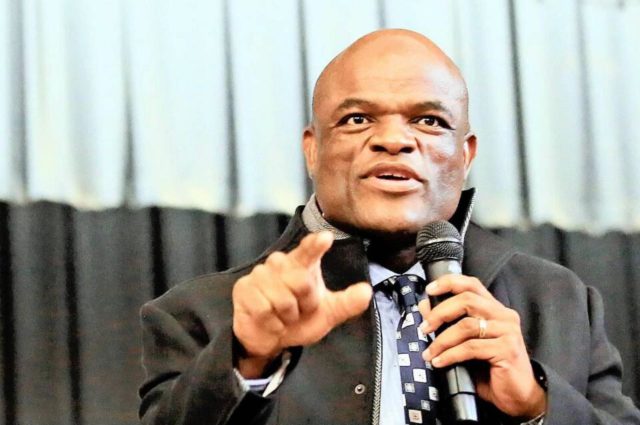Premier Dr Zamani Saul stated that there was a need to instil trust and confidence in the public service.
THE Premier, Dr Zamani Saul, noted that South Africans had lost trust in the president and law enforcement agencies while delivering the keynote address at the Public Service Commission seminar into the implications for the public service based on the outcome of the commission of enquiry into allegations of state capture, corruption and fraud in the public sector, in Pretoria this week.
“The Afro barometer team in South Africa, led by the Institute for Justice and Reconciliation and Plus 94 research found that only 38 percent of South Africans trust the President while 27 percent have faith in parliament while only 43 percent express trust in the courts of law.
“The public sector in South Africa has recently been marred by a series of scandals, which is as a result of instances of clear lack of ethics. Commissions, such as the Zondo Commission, Nugent and Mokgoro, have revealed that public administration in South Africa is faced with an increasing challenge of rampant corruption. Lack of ethics and corruption manifests among public office bearers and public servants. This scourge impedes government departments’ capacity to render public services effectively and efficiently. It goes without saying that corruption robs the poor the most.”
He believed that the apartheid state was “fundamentally flawed and corrupt.”
“The primary existence was to cater for the white minority interest by suppressing the black majority.”
He stated that there was a need to instil trust and confidence in the public service.
“Public trust in the public service in Africa is at an all-time low and South Africa is no exception. Only about one in three citizens (36 percent) trust the Electoral Commission of South Africa, while 42 percent trust the Public Protector.
“Two-thirds (67 percent) of South Africans would be willing to give up elections if a non- elected government could provide security, housing, jobs and fight corruption.
Saul added that the reports of the State Capture Commission revealed discontentment between the citizens and the public service.
“During a disaster, the public service is expected to play a pivotal role to mitigate its impact and it is also expected that there will be an increase in public trust.
“However, the plunder of public resources that were meant to save lives during Covid-19, accentuated a sense of deep mistrust by citizens in the public service. The recent government intervention in both KwaZulu Natal and parts of the Eastern Cape to mitigate the impact of the floods is met with a deep sense of cynicism by the majority of South Africans, that this intervention creates another front for looting of public resources.”
He indicated that the three year state capture investigation cost the country R1 billion.
“This is roughly equal to the R864 million which McKinsey has repaid to Eskom and South African Airways (SAA) after negotiations with the commission.
“The report concentrated on state owned enterprises (SOEs) such as SAA, Denel, Transnet,
Eskom, SABC and Prasa, that are limping and are depending on the overstretched fiscus for their continued existence. Through fiscal bailouts to these SOE’s we take money from public education and public health to fund their operational cost and capex needs.”
Saul noted that disengaged citizens who mistrusted the public service were drawn towards civil unrest and violent protests which in turn led to the exodus of skilled professionals from the public sector.
He believed that the Zondo commission would serve as a deterrent to public servants from looting state resources and encourage whistleblowers to report fraud and corruption within the state..
“The Zondo Commission report will give the public service an opportunity to build trust. This is likely to take time, but it is an opportunity that must not go to waste.
“Part of Zondo Commission’s suggestion was to enhance transparency by amending the political party funding act and also enact laws that can redefine public procurement processes.”
Saul said norms and standards on ethics, integrity and disciplined management in the civil service would be implemented by a unit launched by the Department of Public Service and Administration.
“This unit will focus on curbing fraud and corruption among public servants by implementing norms and standards on ethics, integrity and disciplined management in the civil service. It will also strengthen the measures for the protection of whistle-blowers in the public service and will contribute to building a culture of ethical leadership whilst helping to professionalise the public service.”








